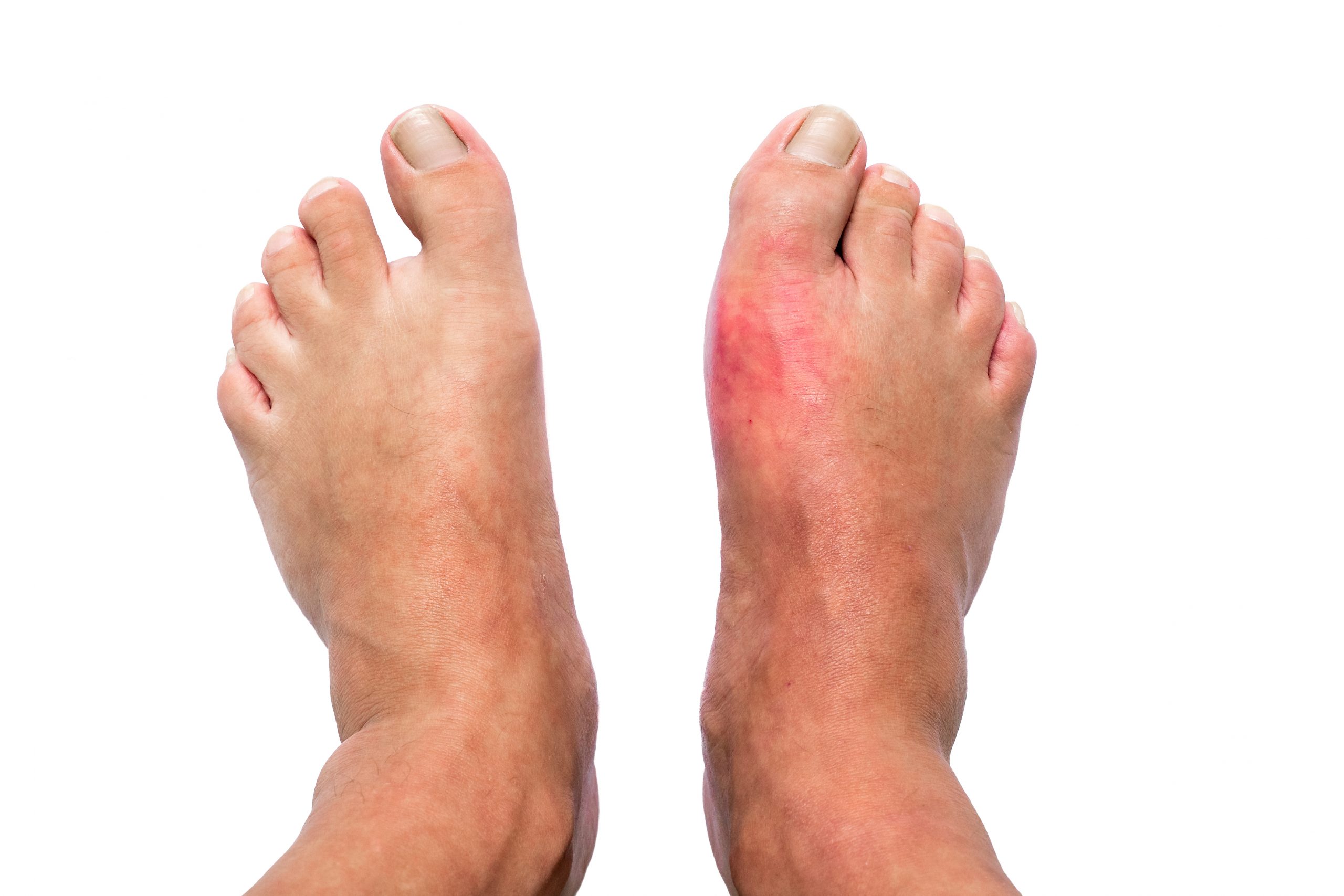Gout can be a common, complex form of arthritis. Gout is characterized as severe, sudden pain, swelling, redness, and tenderness in one or several joints, usually the big toe. Gout Big Toe
Signs
Gout symptoms and signs almost always appear suddenly, often in the middle of the night. These include: Severe joint pain. Gout typically affects the bigtoe but can also occur in other joints. Gout can also affect the ankles as well as the knees, elbows and wrists. It is most likely that the pain will be severe within four to twelve hours of it starting.
Persistent discomfort. Some joint discomfort can persist after the worst pain has subsided. This may last for several days or even weeks. Later attacks will likely last longer and impact more joints. Redness and swelling. Swollen, tender, warm, and reddened joints are common. Here you can learn more about the symptoms of Gout: Gout Symptoms
Causes
Gout is caused by urate crystals building up in joints. This causes inflammation and severe pain. If you have high levels uric acid, urate crystals may form. Uric acid is produced by the body when it breaks down purines. These are substances found naturally in the body.
Some foods contain purines, such as red meats and organ meats like liver. Anchovies and other shellfish rich in purines include mussels, anchovies and trout. Higher levels of uric acids are promoted by alcohol, particularly beer and sweetened beverages with fruit sugar (fructose).
Uric acid is normally dissolved in blood and passed through the kidneys to the urine. Sometimes, the body produces too much or the kidneys produce too little uric acid. This is when uric acid forms sharp, needle-shaped crystals in joints or surrounding tissues, which can cause pain, inflammation, and swelling. In this channel you will learn more about the causes of Gout: Gout Home Remedy
Risk Factors
High levels of uric acids in the body can make you more susceptible to developing gout. The following factors can increase the amount of uric acid within the body:
Diet. Gout can be caused by a diet that consists primarily of red meat, seafood, and sweetened beverages with fruit sugar (fructose). Gout can also be caused by alcohol consumption, particularly beer.
Weight. Your body will produce more uric acid if you are overweight. This makes it more difficult for your kidneys.
Conditions that are medical. Gout can be increased by certain diseases and conditions. Untreated high blood pressure, chronic conditions such as diabetes, obesity and metabolic syndrome, along with other diseases and conditions can increase your risk of developing gout.
Certain medications. Low-dose aspirin and some medications used to control hypertension, including thiazide diuretics, angiotensin-converting enzyme inhibitors, and beta-blockers, can also increase uric acid levels. The same effects can be seen in people who have had organ transplants. Gout is a condition that can be traced back to your family history. Gout is more common in families with gouty relatives. Fortunately, there are many home remedies to treat Gout: Home Remedies For Gout
Diagnosis
Gout is usually diagnosed by doctors based on symptoms and the appearances of affected joints. These tests can help you diagnose gout:
Analyzing synovial fluid. A needle may be used by the doctor to extract fluid from the affected joints. Under a microscope, you can see if there are any urae crystals in the fluid.
Blood tests. A blood test may be recommended by your doctor to determine the level of uric acid in your blood. Blood tests can be confusing. People may have elevated levels of uric acid, but not gout. Some people may have symptoms and signs of gout but not unusual levels of blood uric acid.
X-rays. X-rays can be used to rule out other causes for joint inflammation. Here you can purchase a natural supplement to treat Gout: Gout Treatment
